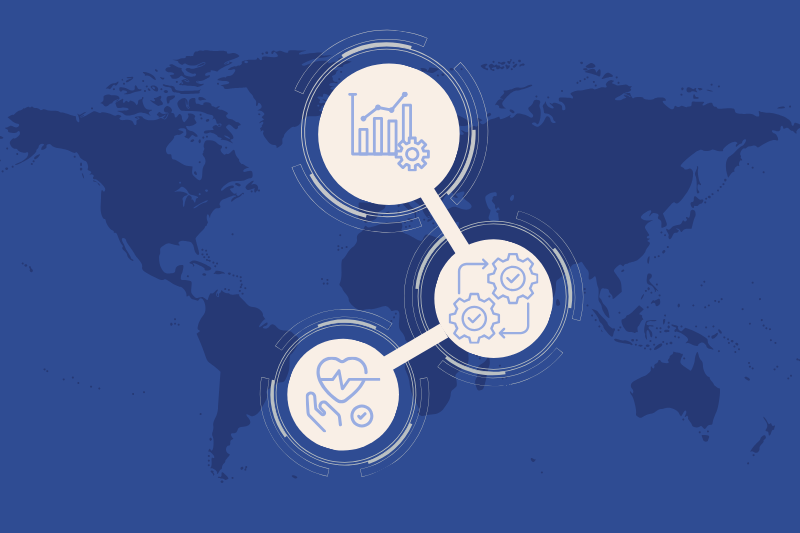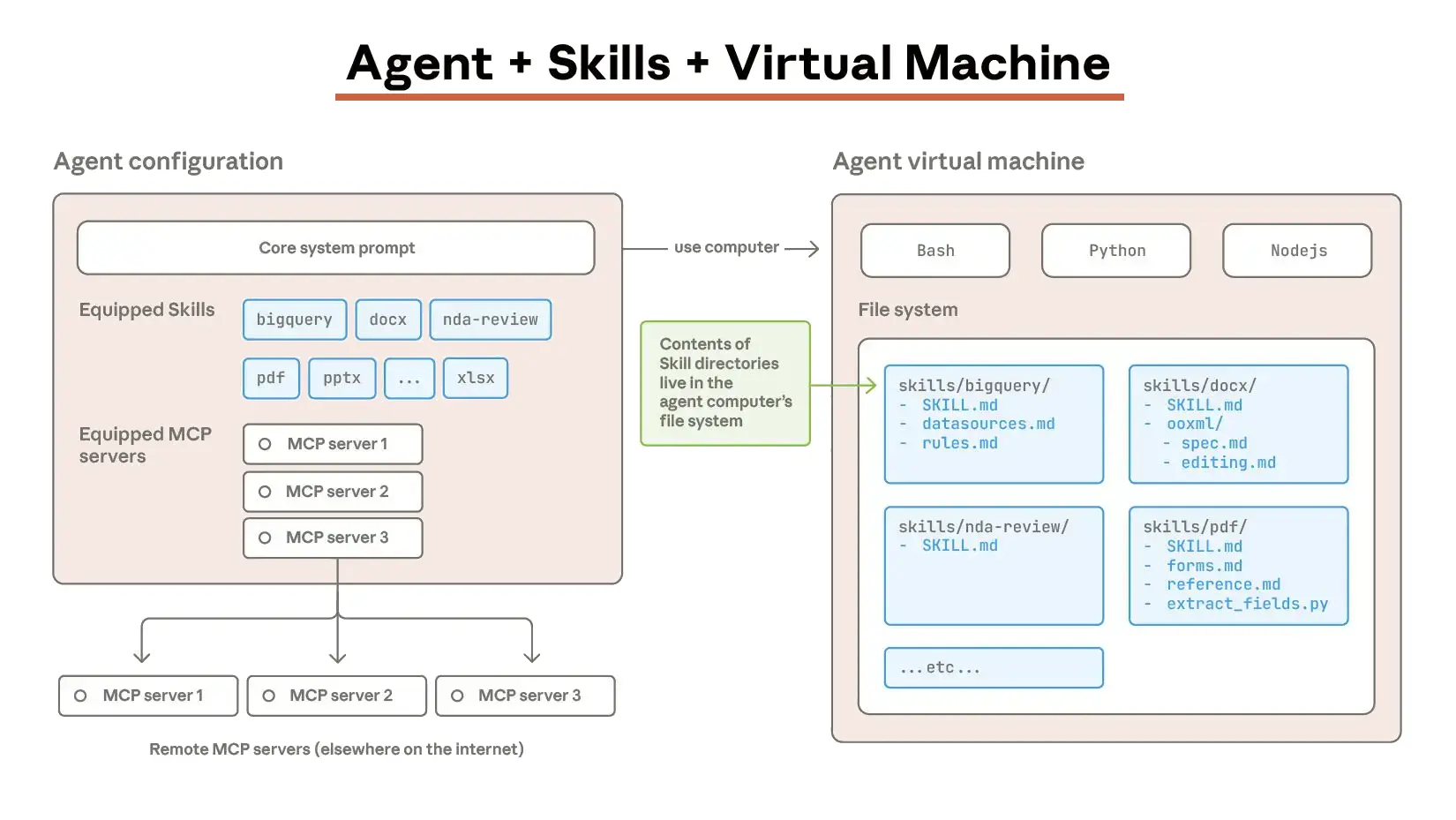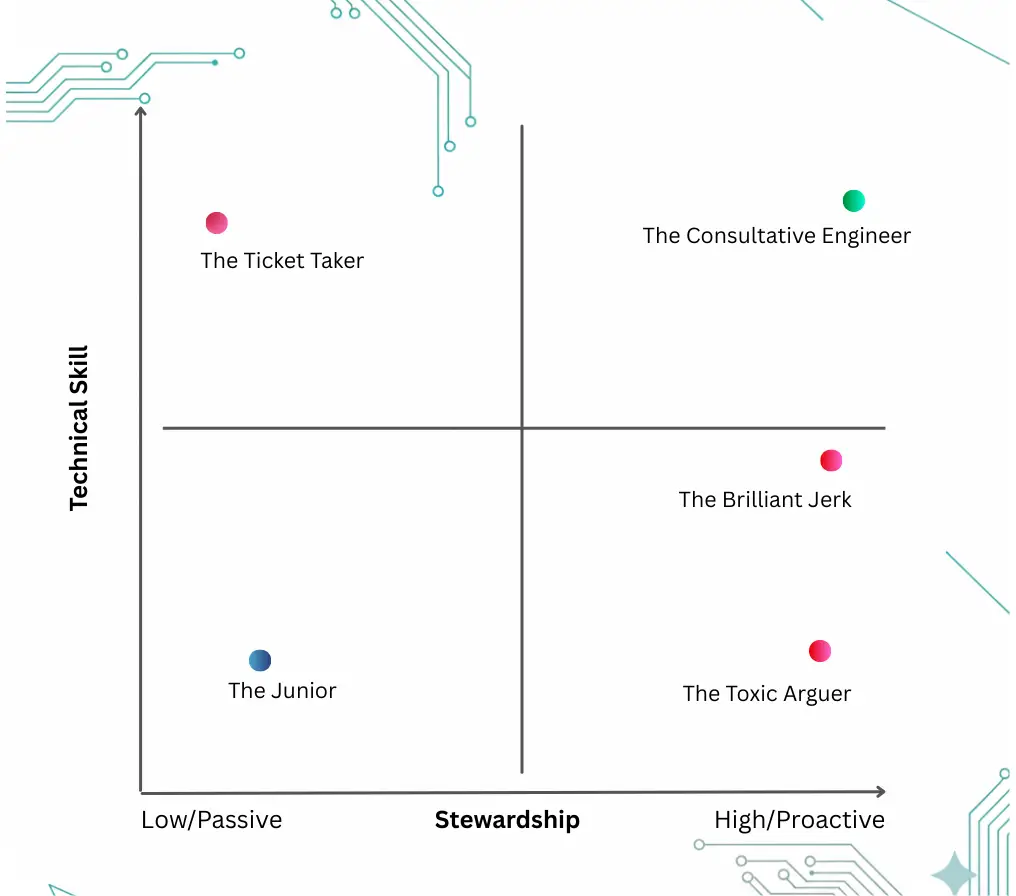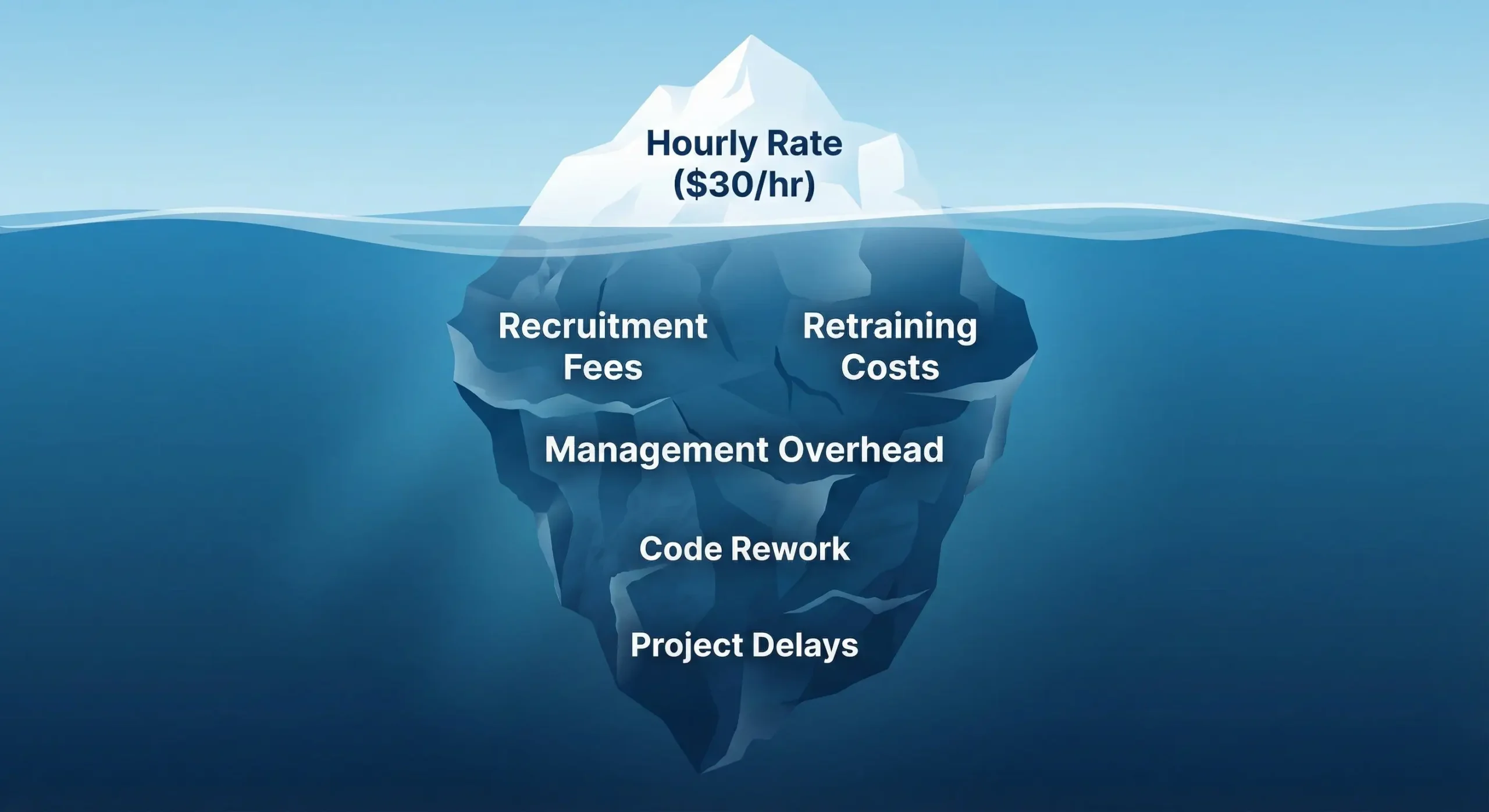As healthcare organizations accelerate digital transformation, the challenge has shifted from collecting vast amounts of healthcare data to making it reliable. Legacy data lakes, originally vaunted for scalability, are now plagued by governance voids, poor metadata, and regulatory complexity. They are giving way to data trusts as a regulated, structured ecosystems that navigate the middle path between innovation and compliance.
This trend is reshaping the way healthcare organizations define health data integrity. It is also rebranding the offshore engineering teams, who are being asked more often to write safe, compliant, and transparent systems that take raw data and turn it into reliable insights.
From Raw Data to Data Trusts: The Evolution of Healthcare Data Architecture
In healthcare AI, the emphasis has gradually shifted from gathering massive volumes of data to ensuring that the data in use is accurate, reliable, and secure. Traditional data lakes offered organizations the opportunity to hold a large amount of information, but too often they lacked the structure and governance necessary for quality. This moves health systems toward curated environments where data integrity, traceability, and accountability are baked into the foundation.
A 2024 Deloitte report revealed that 82 percent of healthcare executives identify data availability, reliability, and quality as critical for adopting generative AI and enabling digital transformation (TechTarget, 2024). Similarly, McKinsey & Company found that 33 percent of healthcare leaders view poor data quality as a major obstacle to AI adoption (McKinsey, 2024). These insights underscore the growing need to move beyond unstructured repositories toward systems that guarantee trust at every stage of the data lifecycle.
These insights emphasize how there is an increasing need to go beyond unstructured repositories to systems that guarantee trust at every stage of the data lifecycle. What this transition brings for the offshore engineering teams is a much greater accountability. The management of sensitive health data is no longer a task of technical skill but rather one of compliance with global privacy frameworks such as HIPAA and GDPR, among others, down to local laws related to data protection and residency. Transparency in data handling, real-time auditing, and tight access management should be their cornerstones. This approach helps build trust and proves that an offshore model can deliver innovation on par with compliance.
The Risks of Offshore Data Handling
As global healthcare systems rely on remote staff for data engineering and AI, offshore collaboration presents opportunity alongside risk. Vulnerable health information must travel across borders securely, and along with it comes the responsibility of adhering to regulations like HIPAA, GDPR, and the forthcoming EU AI Act.
Both the World Health Organization (WHO) and HIMSS have both indicated that healthcare data breaches now account for more than 30 percent of all cybersecurity incidents globally, and secure data management is therefore a high-strategic issue (HIMSS Cybersecurity Survey, 2024).
Some offshore threats include:
- Data privacy exposure: Transmitting personally identifiable or clinical information beyond borders without adequate protections.
- Regulatory misalignment: Disparities in consent management, retention, and access control between countries.
- Limited visibility: Offshore processes without traceability undermine auditability, impacting data integrity and trust.
These issues cannot be solved with technical controls alone. A governance mindset well entrenched in offshore processes is required.
Building Trust Frameworks for Health Data Integrity
A data trust model is the building block of compliant and ethical use of data. It brings together policies, security processes, and technologies to render data complete, accurate, and free from misuse.
Best-in-class models include:
- Data Provenance: Accounting for every transformation and making the origin of each record traceable.
- Granular Access Controls: Role-granted authorisation permissions that enable users to view just what they should view.
- Consent Management: Mechanisms that allow patients to access, modify, or withdraw consent within more than a single system.
- Automated Auditing: Continuous verification of access, such that all interactions are logged and in accordance.
A 2024 McKinsey report about digital health infrastructure found that those implementing frameworks for governed governance improved the integrity of data by as much as 35 percent and removed compliance violations by up to 40 percent (McKinsey Digital Health Report, 2024).
Offshore teams, when well-organized and regulated, can be very effective in implementing these frameworks to international systems.
The Role of Offshore Teams in Governance and Compliance
Offshore engineering groups are no longer just support resources but strategic partners in executing governance and compliance. They design, deploy, and manage the systems that safeguard patient information while enabling interoperability.
Offshore teams operating in today’s health care environments are responsible for:
- FHIR-based integrations for seamless sharing of data across hospitals, payers, and digital health platforms.
- Automatic monitoring systems tracking anomalies in the access logs and generating alerts for policy violations.
- Encryption pipelines that protect PHI both in transit and at rest.
Incorporating compliance into the development process, offshore teams can turn risk into resilience.
Case Study: Scaling Governance through Offshore Expertise
Abacus Insights, a US healthcare data platform, needed it to scale its engineering capacity to handle massive amounts of sensitive payer data without compromising HIPAA compliance. With TechKraft, the company established a structured offshore model that blended dedicated data engineers, QA analysts, and DevOps teams working in synchronized cycles.
Through this collaboration, Abacus Insights achieved:
- Enhanced data pipeline development using FHIR integration harmonized at scale.
- Constant QA and auditing, reducing compliance failures and operations downtime.
- Strong infrastructure able to withstand real-time analytics without compromise to data security.
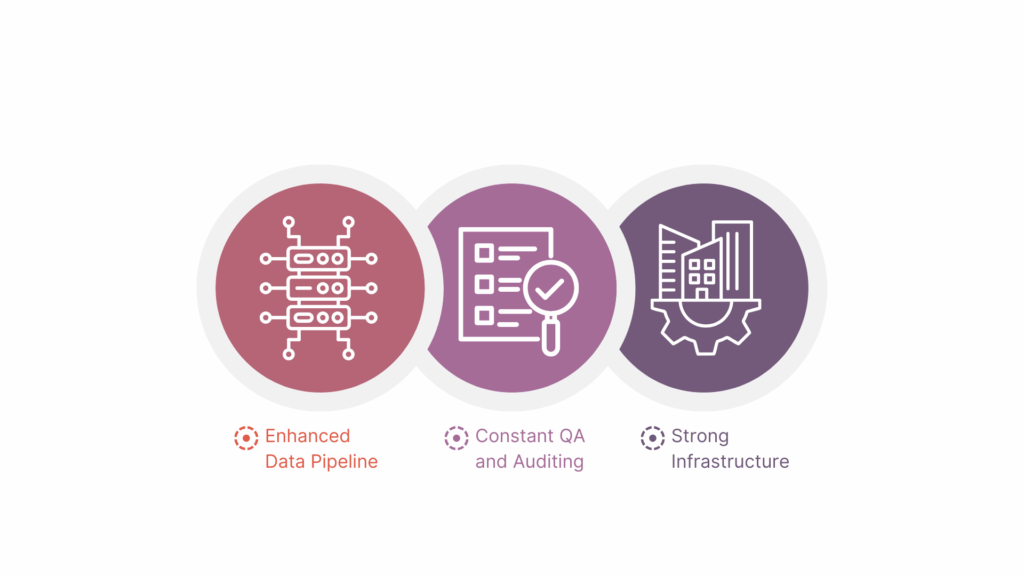
This approach proved that offshore teams, when organized and regulated well, could enhance health data integrity and compliance performance simultaneously.
How TechKraft Builds Data Trusts in Distributed Environments
Compliance and governance at TechKraft are not an afterthought, but a necessity. All offshore activities are put into context with a “compliance by design” philosophy, where teams integrate data protection and quality assurance into the DNA of the development process.
TechKraft’s strategy includes:
- ISO 27001:2022 certification for maintaining high data security standards.
- Green data centres in Nepal with encrypted environments for the processing of PHI and PII.
- Role-based access control ensuring sensitive documents are traceable and secure.
- Regular security audits and compliance reporting on a global standards basis.
Through this framework, TechKraft enables healthcare organizations to build systems not just scalable, but trustworthy.
Moving from Compliance to Confidence
The transition from data lakes to data trusts is more than a technological shift. It’s a shift in perspective from storing data, to caring for it with responsibility. Offshore teams that understand governance, transparency, and compliance are becoming the cornerstone of healthcare innovation in the current era.
As the industry continues to trend global, healthcare businesses that correlate their offshore initiatives with trust-based models will lead the charge on both innovation and integrity.
Ready to Transform Your Health Data Architecture?
Take the next step toward data integrity and innovation. Partner with TechKraft and turn compliance into your competitive advantage.
Contact us today to design your future-ready healthcare data trust.
